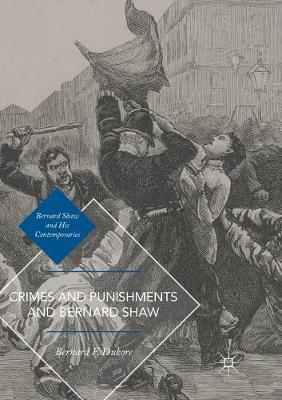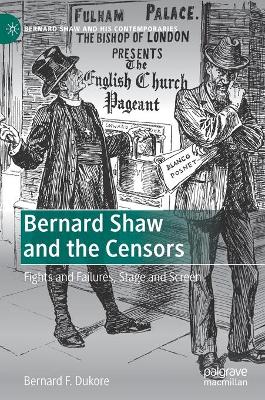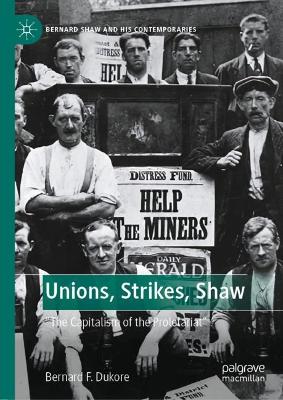Bernard Shaw and His Contemporaries
3 total works
"Dukore's style is fluid and his wit delightful. I learned a tremendous amount, as will most readers, and Bernard Shaw and the Censors will doubtless be the last word on the topic."
- Michel Pharand, former editor of SHAW: The Journal of Bernard Shaw Studies and author of Bernard Shaw and the French (2001).
"This book shows us a new side of Shaw and his complicated relationships to the powerful mechanisms of stage and screen censorship in the long twentieth century."
- - Lauren Arrington, Professor of English, Maynooth University, Ireland
A fresh view of Shaw versus stage and screen censors, this book describes Shaw as fighter and failure, whose battles against censorship - of his plays and those of others, of his works for the screen and those of others - he sometimes won but usually lost. We forget usually, because ultimately he prevailed and because his witty reports of defeats are so buoyant, they seem to describe triumphs. We think of him as a celebrity, not an outsider; as a classic, not one of the avant-garde, of which Victorians and Edwardians were intolerant; as ahead of his time, not of it, when he was called "disgusting," "immoral", and "degenerate." Yet it took over three decades and a world war before British censors permitted a public performance of Mrs Warren's Profession. We remember him as an Academy Award winner for Pygmalion, not as an author whose dialogue censors required deletions for showings in the United States. Scrutinizing the powerful stage and cinema censorship in Britain and America, this book focuses on one of its most notable campaigners against them in the last century.
Unions, Strikes, Shaw: ‘The Capitalism of the Proletariat’ is the first book to treat Bernard Shaw—socialist, dramatist, public speaker and union member—in relation to unions and strikes. For over half a century he urged workers to join unions, which he called, paradoxically, “the Capitalism of the Proletariat,” because as capitalists try to get as much labor as possible from workers while paying them as little as possible, unions try to gain as high wages as possible from employers while working as little as possible. He opposed general strikes as destined to fail, since owners can hold out longer than workers, whose unions have less money to support them during strikes. This book offers background on major strikes in and before Shaw’s time —including the Colorado Coalfield War and the Dublin Lockout, both in 1913—before analyzing the causes, day-by-day events and consequences of Britain’s 1926 General Strike. It begins and ends with examinations of their and Shaw’s relevance to actions on unions and strikes in our own time.


